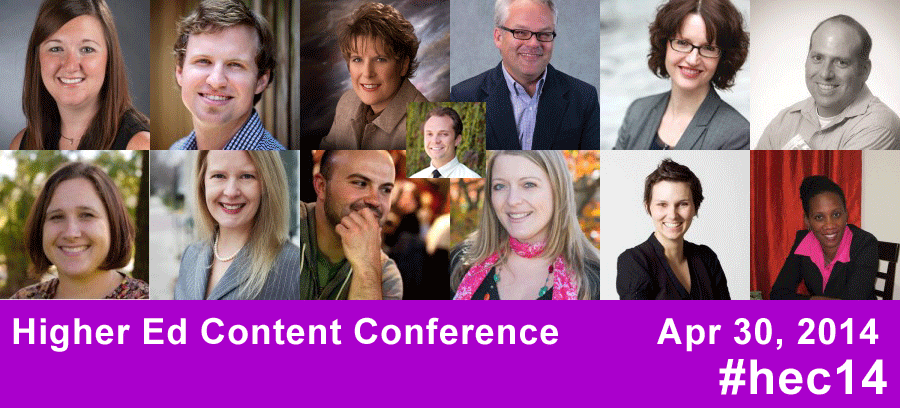 David Anderson, at UB School of Medicine and Biomedical Sciences, is one of the 13 higher ed professionals presenting at the 2014 Higher Ed Content Conference.
David Anderson, at UB School of Medicine and Biomedical Sciences, is one of the 13 higher ed professionals presenting at the 2014 Higher Ed Content Conference.
David is a daily content strategist, applying research to practice at his school.
In this 3-question interview, David tells us about a content challenge, a secret weapon to create better content and shares some advice.
1) What is the biggest challenge you face in your day-to-day work on higher ed content?
Extracting information and knowledge from subject matter experts is our biggest challenge. We can’t make progress in transforming department sites without that information.
We deal with this in a couple of ways. In our intake meeting (with the department chair and other key staff), we set expectations right away: we can’t make progress without full cooperation. And I point out that, in all the projects I have worked on, getting content from SMEs has always been the holdup.
When we come to a standstill and we’re not getting the cooperation we need, we remind the department chair that we rely on their faculty to move their project forward. If necessary, we will offer to set aside their transformation and move to another project. If we do set aside a transformation, we won’t pick it up again until we’ve finished other work.
It helps to have the full support of our administration and a long list of potential clients who need their websites transformed.
2) What is your secret weapon to get better higher ed content created?
Professional writers. We have two full-time writers and one part-time writer in our office. They write all the content for our transformed site and all the articles that appear on their sites.
There’s a pretty common misconception that staff in departments, who might spend 4-5 hours a year writing, can be transformed in to experts in writing for the web. It’s simply not possible: writing is both an art and a practice. One (or even a few) training sessions in how to write for the web cannot make up for years of inattention. Writing requires daily practice to develop the skill and remain sharp.
Our writers, because they are working in both transforming department sites and writing news articles on a daily basis, have a broader perspective than any department staff member will ever have. They see and make connections that department staff simply cannot.
More to the point, however: professional writers follow a style guide. Our writing has a consistent voice. We have a style guide that’s informed by content strategy. It’s applied consistently across our transformed sites. It’s practically impossible to get our level of consistency, quality and cooperation from department staff who largely view the work as a chore.
3) What piece of advice would you give to somebody who wants to improve digital content?
Learn the rules and mechanics of writing, even if you don’t write. You need to be able to give good advice about how you want your writers to write.
And learn as much as you can about what makes for effective photos. Too little attention is paid to the photos that are used on websites. There is a lot of research available about how we interact with photos: seek that out and apply it to your photos. If you only apply a tenth of the recommendations you find, you’ll be far ahead of the game.
Tags: Higher Ed News